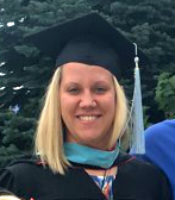- Online Programs
- Education Programs
-
-
- M.Ed. – Adult Education
- M.Ed. – Career & Technical Education (CTE)
- M.Ed. – Career & Technical Education (CTE) Administrator
- M.Ed. – Curriculum & Instruction
- M.Ed. – Early Childhood Education
- M.Ed. – Educational Leadership
- M.Ed. - Educational Leadership, Principal Certification
- M.Ed. – English Language Learners (ELL)
-
-
- Business Programs
-
-
- MBA with an Organizational Leadership Concentration
- MBA and MPAcc Dual Degree
- Master of Professional Accounting
- Master of Professional Accounting in Business Analysis and Reporting
- Master of Science – Organizational Leadership
- Master of Science – Organizational Leadership, Artificial Intelligence Leadership Concentration
- Master of Science – Organizational Leadership, Change Leadership Concentration
-
- Health Care Programs
- Certificates
-
-
- Grad Cert. – Business
- Grad Cert. – Career & Technical Education (CTE)
- Grad Cert. – Career & Technical Education (CTE) Administrator
- Grad Cert. – Change Leadership
- Grad Cert. – College Teaching
- Grad Cert. – Early Childhood Education
- Grad Cert. – English Language Learners (ELL)
- Grad Cert. – Health & Physical Education
- Grad Cert. – Healthcare Administration
-
-
- Education Programs
- Getting Started
- Resources
- Apply Now
Apply now and save $75! App fee waived for ALL Spring II applicants!
Questions & Answers: Master’s in Early Childhood Education Online

A Master of Education (M.Ed.) in Early Childhood Education provides students with the knowledge and classroom skills required to profoundly impact the lives of young learners. This valuable degree offers many different pathways to advanced teaching and administrative positions, furthering your education career.
An online early childhood education master’s program can be especially conducive to the needs of current teachers who want an advanced degree but do not want to interrupt their career to earn it. The flexibility and convenience of online courses means you can continue teaching while you study for your M.Ed. Many graduate students are able to immediately apply what they are learning to their work in the classroom.
The links below address common questions students have about this master’s degree, and provide details you need to know about learning online.

The M.Ed. is a graduate degree in the field of education. M.Ed. degrees are offered in numerous specialties, including literacy, curriculum and instruction and higher education administration. Students in an early childhood education (ECE) M.Ed. program study children’s development from birth through age eight. They also design materials and environments that encourage children to learn.
You can gain insights into family dynamics and parent engagement as well, and learn about their influence on a child’s education. Courses also focus on educational policy and leadership, along with other relevant topics. Graduates are prepared for many different careers teaching and leading in organizations that serve young children.
Eastern Washington University’s Master of Education in Early Childhood Education program aligns with National Association for the Education of Young Children (NAEYC) professional standards for excellence in the field, as well as those set by the Interstate Teacher Assessment Standards Consortium (InTASC).
The EWU degree curriculum reflects the most current evidence-based practices, methods and skills for working with children and families, and supporting them with appropriate learning interventions. EWU has been training educators for more than a century, and this accredited university offers students an accelerated online option for earning a master’s degree.
M.Ed. graduates in early childhood education work as teachers and administrators in many different settings, including public, private, charter and parochial schools. They also work in preschools and child care centers, with nonprofit organizations, and with federal programs such as Head Start, a 50-state initiative that provides school readiness training and other services for low-income families with young children.


—Dr. Ann Van Wig, EWU Director of Graduate and MIT Programs and Assistant Professor of Education


Teaching certification requires specific coursework that students usually take during their studies for a Bachelor of Education, or as part of an alternative teacher certification program. If you don’t have your teaching certificate already, most ECE master’s programs will not include all of the coursework required to earn it.
If your ultimate goal is to become a certified teacher, it’s still possible to earn that credential after finishing your master’s. Having a foundation in early childhood education will also give you a head start on the learning process, because you’ll already understand core concepts and principles of teaching.
Certification plus a master’s degree can help you qualify for a range of teaching options, and seek other specialty endorsements and leadership certificates. Each state has its own certification standards, policies and processes, but the Education Commission of the States maintains a directory that can help you find requirements for your state. Since policies are often subject to change, always confirm current guidelines with your state education authority.

Certified teachers earning this M.Ed. often qualify for the corresponding license endorsement, but state regulations can vary. If you are seeking an ECE endorsement, be sure to check your state’s education agency’s guidelines to ensure your master’s program coursework meets current standards.
EWU students who hold a teaching certificate in Washington State can qualify for the license endorsement by completing the degree and passing the National Evaluation Series™ Early Childhood Education test.
Accreditation is a rigorous voluntary review and assessment process that determines whether a degree program meets the high educational standards established by accrediting organizations. Reviewers evaluate each program’s operational and educational performance, looking at everything from administrator and faculty qualifications to curriculum, fiscal responsibility and graduation rates.

Eastern Washington University’s M.Ed. in Early Childhood Education is approved by the State of Washington Professional Educator Standards Board.
The university is also regionally accredited by the Northwest Commission on Colleges and Universities, which is recognized by the Council for Higher Education Accreditation (CHEA).

Attending an accredited university offers several important and valuable benefits for students:
You can access federal and state financial aid. The U.S. Department of Education requires that students enroll in an accredited institution or degree program in order to participate in available aid programs.
You can use military education benefits to pay for college. To use active-duty military and veterans’ education benefits, you must be enrolled at an accredited institution recognized by the U.S. Department of Veterans Affairs.
You can transfer credits to other accredited colleges or universities. Without accreditation, the courses you take may not be accepted at other schools.
Certified teachers with an accredited master’s degree have a competitive advantage on the job market. This is especially true when it comes to teaching at a primary school. Most public school districts do not accept any type of teaching or administrative degree from an unaccredited university.
Accreditation is also important if you plan to seek teacher certification at some point in the future. Most state-approved certification programs do not accept candidates with an unaccredited bachelor’s or master’s degree.

Courses for this type of online master’s program cover the theory and practice of education for young learners, focusing on the development period from birth through age eight. You’ll consider the teacher and administrator’s role at each stage and learn appropriate instructional strategies for children of different ages. Coursework also addresses the impact that school leadership and family engagement can have on a child’s progress, as well as the current issues in education that influence the learning environment, or limit access to children’s services that support learning.
EWU’s Master of Education in Early Childhood Education online program features 12 courses, and includes two internship sessions, a portfolio and a comprehensive exam. The courses total 49 credits. Each online course is six weeks in length.
The following courses are required to earn the degree. Each is four credits, unless otherwise noted.
Core Courses
Transformation of Learning & Teaching
Philosophy/Organization of American Schools
Current Issues in Education
Methods of Educational Research
Specialization Courses
The Science of Early Childhood Development: Risk and Resilience
Curriculum and Practice in Early Childhood Education
The Intentional Teacher
Positive Learning Environments for Young Children
Family Engagement, Systems and Theory
Early Childhood Leadership, Policy and Practice
Early Childhood Internship I (two credits)
Early Childhood Internship II (two credits)
ECE Portfolio (two credits)
ECE Comprehensive Examination (three credits)
Course descriptions are available on the EWU program website.


—Deanna Peterson, online M.Ed. in ECE student at EWU


Learn more about EWU’s Master of Education in Early Childhood Education online program!
Many online master’s programs in early childhood education require an internship or practicum. In most cases, students find and arrange their own placement, which allows them to complete this degree requirement in their home community.
The student’s placement must be agreed upon cooperatively by the university and the site in the community where the student will complete the internship. You may choose settings such as a public school, a private school, a child care or day care center or a child-focused outreach program such as Head Start.
Students in Eastern Washington University’s online M.Ed. in Early Childhood Education program complete two internships. Each requires 60 clock hours.

Internships typically require students to participate at their site by teaching, tutoring or assisting in activities with children. They are supervised by an experienced mentor in early childhood education. Interns typically keep written documentation in some form as well, which can differ depending on their program’s requirements.
EWU internships follow this same format, but also include other activities involved in teaching and learning, such as curriculum evaluation. The goal is to provide students the chance to engage in a learning process that will help them meet NAYEC competency standards for early childhood educators.
During their internships, EWU students also work on assignments and provide reports reflecting on, evaluating and documenting their experiences. They complete relevant readings and post to class discussion boards as well.
The requirements will be similar, but you might choose a different type of site and mentor. For instance, if you already own a daycare or preschool, your best mentor might actually be one of your professors. If you hope to open a facility serving young learners, a business owner currently working in early childhood education could be a great fit.
If your goal is to run nonprofit programs that address children’s educational needs, there are numerous internship options you could consider. You might approach a local children’s organization that’s serving the population you want to work with, for instance, or a public agency that oversees education programs in your community.
Be sure to check with your program faculty for ideas and guidance as well, so that you can arrange an internship experience that meets degree requirements.


Often you can, depending on your degree program’s requirements. If approved, you may be able to complete an internship at the campus where you work as a teacher, or on the job in a day care or child care center. Some programs may ask you to complete your internship in a new setting, with different students or responsibilities. Others will allow you to work with your current students.
EWU supports internship placement at your current workplace when it is available and appropriate. Sites, mentors and activities must be approved by a supervising professor.
PayScale data from November 2019 shows that M.Ed. graduates in early childhood education earn an annual average salary of $47,000 per year. Bachelor’s graduates in early childhood education earn an average annual salary of $43,000. A difference of $4,000 — almost 10% — is significant when you consider how this deficit adds up over time. In just a decade, master’s graduates can earn approximately $40,000 more in salary than their peers with only an undergraduate degree.
Your actual salary will depend on your experience and the early childhood education role you choose. The table below compares nationwide annual average salaries for jobs held by educators in the field with a master’s degree vs. a bachelor’s degree.
| Job Title | Annual Average Salary | Added Annual Value of M.Ed. |
|
|---|---|---|---|
| M.Ed. | Bachelor's | ||
| Early Intervention Specialist | $55,000 | $37,000 | $18,000 |
| Head Teacher | $53,000 | $40,000 | $13,000 |
| Child Care Center Director | $52,000 | $47,000 | $5,000 |
| Elementary School Teacher | $49,000 | $40,000 | $9,000 |
| Preschool Director | $42,000 | $37,000 | $5,000 |
| Preschool Teacher (excluding special education) | $39,000 | $35,000 | $4,000 |
Source: PayScale, November 2019
It depends on the school district, and sometimes education policy in the state where you live. However, many districts do pay early childhood teachers with a master’s degree more. They may also offer additional bonuses or teaching stipends.
Starting salaries for new master’s graduates can vary widely among school districts, but as the table below illustrates, teachers with a graduate degree often have an advantage.
| Starting Salaries for Certified New Teachers | |||
|---|---|---|---|
| District | State | With Master's | With Bachelor's |
| Blaine Country School District | Idaho | $57,084 | $45,667 |
| Seattle Public Schools | Washington | $56,531 | $50,502 |
| Portland Public Schools | Oregon | $51,733 | $43,382 |
| Elk Grove Unified School District | Washington | $50,205 | $47,195 |
Source: District salary schedules, 2019-2020


—April Westerman, 2015 EWU M.Ed.-ECE graduate

The Bureau of Labor Statistics (BLS) projects steady growth in early childhood education occupations. According to the BLS, preschool teachers will be the most in demand in the decade ahead, and enrollment in public kindergarten and secondary schools is also expected to rise. As the following chart based on BLS figures demonstrates, ECE master’s graduates can look forward to solid employment opportunity.
Demand for graduates in this specialization is also expected to increase as the U.S. education system expands to integrate child care, preschool, and other programs for children from birth to age eight. This emerging approach to education is detailed in NAYEC ‘s Framework for a Unified Early Childhood Education Profession.
Early childhood master’s graduates can find excellent opportunity in the Northwestern U.S. and California according to Burning Glass Technologies, a leading provider of labor market research and data. Job postings from November 2018-October 2019 indicate that graduates are being most heavily recruited in the following metro areas:
California
- San Francisco-Oakland-Heyward
- Los Angeles-Long Beach-Anaheim
- San Jose-Sunnyvale-Santa Clara
- Sacramento-Roseville-Auden-Arcata
Idaho
- Boise City
Oregon
- Portland-Vancouver-Hillsboro
Washington
- Seattle-Tacoma-Bellevue
- Bremerton-Silverdale

Yes. There are many roles other than preschool, kindergarten or elementary school teacher for which the M.Ed. in early childhood education prepares you.
Demand is increasing for a wide range of early childhood education skills. In fact, many public, private and nonprofit organizations provide opportunities for graduates with an early childhood master’s degree. There are many workplaces you might consider teaching other than a school classroom, such as:
- Disability support and service organizations serving children and their families
- Head Start and similar school-readiness programs
- School extension programs, providing arts, recreation or after-school services
- Early intervention programs, offered through school districts or nonprofit organizations
- Child care and day care providers

A master’s in early childhood education can prepare you for a number of important administrative roles that support young children’s development as learners. At the school level, you might work as a curriculum development specialist, service coordinator, or an early childhood program specialist. You might also work with a state, county or city agency overseeing P-3 education, or providing services for young learners.
There are many public and private sector opportunities for early childhood program developers, coordinators and managers as well. You could also work in educational publishing.
There are even non-teaching roles where you can use the full range of knowledge an ECE master’s degree provides graduates. For instance, education professionals who work on Quality Rating and Improvement Systems (QRIS) must understand how children learn, and how education systems can best support them. QRIS specialists facilitate the rating process for early childhood services and education agencies, and help raise quality standards.

The best way to determine whether an online master’s program is a good value is to carefully compare all programs you are interested in based on key factors that offer insight into their quality. Important elements to consider include each program’s accreditation status and reputation. It is also essential to determine the total cost of your degree.
In addition to tuition rates, be sure to look at the amount you’ll pay in student fees. Calculating tuition and expenses for an online master’s in early childhood education may seem complicated, but the following process can make it simple.
- Start with the cost per credit for your residency status (some programs charge out-of-state students more).
- Multiply the cost per credit by the number of credits required to complete the degree program. The resulting number is your total tuition cost.
- Determine the amount of additional student fees you will have to pay. Depending on the fee, it may be assessed by term, by credit hour or only in certain circumstances.
- Add the fees to your tuition to get an estimate of your total degree cost. To see your actual cost per credit, just divide the total cost figure by the number of hours required.
Textbooks can be a cost consideration as well, but reading materials for online courses are usually available in digital form, saving students money.
This is less likely with an online college or university program in early childhood education, but certain schools do come with a high price tag if you are not an in-state student. According to College Board research, some institutions charge out-of-state residents tuition rates that are double or triple what state residents pay.
| State | Average In-State | Average Out-of-State |
|---|---|---|
| Tuition & Fees | Tuition & Fees | |
| California | $9,970 | $31,750 |
| Washington | $10,080 | $30,750 |
| Oregon | $11,220 | $31,840 |
| Idaho | $8,000 | $25,180 |
Source: College Board, 2019-2020 rates at public four-year colleges and universities
It’s also important to make sure you won’t be paying higher fees because of where you live. For example, some colleges that do not charge higher tuition for out-of-state students still add a per-credit distance-learning fee for each online course they take.
If you can avoid paying out-of-state tuition, you could save thousands of dollars by the time you graduate. At Eastern Washington University, all students — resident or out-of-state — pay the same tuition for each course.
It depends on the program you choose, and a few other variables. Online master’s programs in early childhood education can range in overall cost, but higher tuition does not necessarily mean higher quality.
The table below illustrates the total price you might pay for an ECE master’s degree at schools in the Northwestern U.S. and California.
| University | Credits | Tuition Per Credit | Total Tuition | Total Estimated Fees | Total Cost | ||||
|---|---|---|---|---|---|---|---|---|---|
| In-State | Out-of-State | In-State | Out-of-State | In-State | Out-of-State | In-State | Out-of-State | ||
| Portland State University | 45 | $434 | $434 | $19,530 | $19,530 | $1925 | $1925 | $21,275 | $21,275 |
| California State University- East Bay* | 45 | $347 | $716 | $15,615 | $32,220 | $4478 | $4478 | $20,093 | $36,698 |
| Boise State University | 45 | $470 | $827 | $15,980 | $28,118 | $1300** | $1300** | $17,280 | $29,419 |
| Eastern Washington University | 45 | $263 | $263 | $12,900 | $12,900 | $0 | $0 | $12,900 | $12,900 |
Cost figures based on each institution's published 2019-2020 tuition and fee rates, and enrollment of six hours/units per term.
*Campus-based program
**Additional fees ranging from $30-$100 per course may apply, depending on the course options you choose.
It depends on the program, but for-profit colleges often cost more than nonprofit colleges, especially when you compare them to public colleges and universities. Earning a master’s degree from a for-profit ECE program can also come with financial concerns beyond what you spend on tuition and fees.
If your for-profit school or degree program hasn’t been accredited, you can’t get federal or state financial aid. That means you might have to pay out of pocket, or turn to private lenders with less favorable rates and repayment terms. According to Forbes, graduates of for-profit colleges also have higher loan default rates, poorer learning outcomes and fewer job prospects than those who graduate from nonprofit schools.

Students enrolled in online degree programs are treated no differently than on-campus students for financial aid purposes, as long as the university is accredited. Online graduate students who apply for aid may be eligible to receive grants, loans or scholarships to help pay for their degree.
Two of the key factors that determine your eligibility for federal and state student aid are your income and the total cost of your graduate program. Once you fill out the Free Application for Federal Student Aid (FAFSA) online and meet other eligibility requirements, your school will determine your aid package.
You must also be registered at least half-time, and in accelerated online programs, even one class per term may meet that requirement. Each school has its own policy concerning half-time status, however, so check with prospective programs for additional information.
EWU provides step-by-step instructions that can help you navigate the financial aid process, and apply for university scholarships.

If the school you are attending is accredited, you should be eligible to use any education benefits you have earned through military service for your M.Ed. in early childhood education. The VA Education and Training Benefits site offers a helpful guide for beneficiaries of the Montgomery GI Bill and Post-9/11 GI Bill. It also has links to manage or transfer your benefits.
If your benefit amount cannot cover the entire cost of your degree, the Department of Veteran’s Affairs has created the Yellow Ribbon Program, which can help provide GI Bill gap coverage.
Whether you’re an active duty service member, veteran, military spouse or dependent, EWU’s Veterans Resource Center can guide you through the benefits application process. See EWU’s 10 steps to enrollment to learn more.
If your current loans don’t exceed the federal student borrowing limit, you may still eligible for graduate school loans. Just be sure to confirm your actual loan balance with the U.S. Department of Education. While you are not allowed to take on new loans if your old accounts are in default, you have several options for rehabilitating your loans as well.
You may also be eligible for loan deferment while you study. This option allows you to suspend loan payments as long as you’re a half-time student.
Loan forgiveness is an avenue of debt relief for many teachers and other educators. The federal Teacher Loan Forgiveness program can erase up to $17,500 of your federal student debt if you teach full time for five consecutive years in a low-income school or low-income educational service agency. You may also want to apply for the Public Service Loan Forgiveness program if you work for a public school or a nonprofit. If you qualify, this option cancels your student loan balance after you’ve made 120 on-time payments.

Admission requirements vary by school, and may also depend on the program’s focus. At minimum, most ECE programs require:
- A bachelor’s degree from an accredited institution
- Official transcripts from all previous colleges and universities attended
- A GPA on previous coursework that meets program standards
Some programs may specify that you need a bachelor’s degree in education or a teaching certificate. You may also be asked to submit an essay or statement of purpose, as well as GRE or MAT exam scores.
Admission to EWU’s M.Ed. in Early Childhood Education program online does not require previous teaching experience or certification. You must have an accredited bachelor’s degree, official transcripts, and a minimum cumulative GPA of 3.0 on the last 90 quarter hours or 60 semester hours of your undergraduate coursework.
In accelerated online master’s programs, you don’t have to wait for a new long semester or school year to begin working on your degree. New classes start throughout the year to accommodate students who are ready to dive into their studies soon after they are accepted.
EWU offers seven start dates each year for the M.Ed. in Early Childhood Education online. You can even fill out your application and submit documents online to expedite the admissions process.

Yes. As a teacher, you are already doing many tasks and using well-practiced skills that you can transfer to your role as a grad student. You manage your classroom, grade homework and tests, monitor student performance and interact with colleagues and parents whenever and wherever you need to. Earning a degree online takes similar discipline, flexibility and a task-oriented mindset.
Planning and time management are also common skills among teachers. As long as you can devote adequate time and focus to your master’s coursework, you can meet your deadlines just as you do in your own classroom. That could mean using lunchtime to study, staying up a little later on weekend nights to finish readings or rising early when needed to start an assignment.
During the workday, your classroom will become a real-world laboratory where you can immediately apply your new skills and experience. You will be learning alongside your students, and their progress can also help you evaluate your own.


—Deanna Peterson, online M.Ed. in ECE student at EWU


In many ways, online courses are not that different than courses on campus. Your professor will lecture, you will read and study textbooks, do research and write papers. You’ll also meet deadlines, turn in assignments, and take tests. So even if you’ve never studied online, the structure of your courses should be instantly familiar.
Some schools also offer an orientation or tutorials that can help ease the transition to the online learning format. To get students off to a good start technologically, EWU offers Online Student Orientation, a self-paced tutorial that will introduce you to the Canvas learning management system and how online courses work. Topics include:
- Connecting with EWU Library services
- Time management for online learning success
- Identifying your learning style
- Academic writing and proper citation style
- Best practices for online communication and collaboration
- How to participate in online assignments, quizzes and surveys in Canvas
Completing this orientation can help you feel more comfortable with the platform, so you can participate in courses successfully.
It depends on your computer’s age and functionality. Here are some questions to help you determine whether an upgrade be necessary.
Can your computer reliably:
- Access the internet and sustain a high-speed connection?
- Upload and download files?
- Play videos?
- Run word processing, spreadsheet and presentation software?
- Store large files?
If your computer can handle these tasks, you are probably going to be fine. But it is always a good idea to have access to a backup, such as your spouse or child’s laptop. You may also be able to use a computer at your workplace after hours or on break, or at a local library if yours is out of service.
It’s easy to perform some school tasks on other internet-connected devices as well, such as a smartphone or tablet.
Yes. Schools with ECE master’s programs usually offer some form of tech support, to ensure that their students can access courses and submit assignments. At EWU, online students can reach the IT Help Desk by phone, email and online. Support hours are Monday-Friday 7:45am-4:50pm, Pacific time. A library of Canvas system guides and job aids is available online, and all enrolled students have free access to the Microsoft Office 365 suite as well.

Just as in an on-campus course, your professor will distribute a syllabus with a schedule for each week’s readings, activities and deadlines for assignments, as well as other key information. The main difference online is that communication and interaction between professor and student happens via video chat and email rather than face to face. Some professors also work with students by phone, and even have conversations by text at times.
Whenever you begin an online course, check in with your professor to see which communication methods are best for asking questions or meeting about your work. Often, you’ll find that information in the course policies section of the syllabus as well.
While there is an element of self-pacing with online learning, master’s courses also require self-discipline to successfully meet weekly assignment deadlines. Students are required to participate in assigned online activities, such as discussion board conversations, which may take place during a specific timeframe. You might also have a limited window in which to take required quizzes or tests.
Even though you still have to complete tasks on a schedule set by your professor, online courses offer plenty of opportunity to fit your education around your life. Rather than rushing after work to a brick-and-mortar campus to attend class or to visit the library, you can just turn to your laptop, tablet or smartphone and start learning. You can also study anywhere you happen to be, as long as you have a good internet connection.

Synchronous online courses have scheduled meeting times. Instead of gathering in a classroom at a specific time, however, professors and students get online simultaneously for lectures and to participate in discussions, presentations and other required activities. The course syllabus outlines work to be done between sessions and deadlines for assignments.
Asynchronous online courses offer more flexibility, because there is no set lecture schedule or requirement to be online at set times. Professors still provide a syllabus, but learning modules are structured to help students move through coursework independently week-by-week. Students can also view professor lectures on video, and complete readings, assignments and discussion board posts whenever it’s most convenient. They can meet with professors and classmates online as needed.
Courses in EWU’s online M.Ed. in Early Childhood Education are 100% asynchronous, and tailored to the needs of graduate students who may be working or parenting young children full time. Accelerated courses also help students build a foundation of ECE knowledge, methods and skills in a short amount of time, and graduate sooner.
Frequently, online courses last for a shorter period than typical semester and quarter courses. Eight weeks or less is common. EWU’s accelerated master’s courses in early childhood education take just six weeks to complete.
The length of time it takes to complete a master’s degree varies by program, and can also depend on how many courses you take each session. In many on-campus ECE programs, full-time students typically earn a degree in two years. Part-time students may take three years or longer, but can finish faster if they study year-round.
EWU’s online M.Ed. in Early Childhood Education can be completed in as few as 12 months. Students can accomplish this by taking two accelerated courses per session, in each of the seven sessions offered annually. If you prefer a slower pace, and take just one course per session, you can still complete the degree in less than two years.
If you have graduate transfer credits in education from another accredited university, you may also be able to finish the degree faster. Contact a program admissions specialist at 800-826-3411 for additional information.

Learn more about EWU’s Master of Education in Early Childhood Education online program!
Additional Sources
Blaine County School District:
Welcome to BCSD2019-2020 Certified Salary Schedule
College Board: 2019-2020 Published In-state Tuition and Fees at Public Four-year Institutions by State
Elk Grove Unified School District:
HomeCertified District Salary Schedule #10
Independent School District of Boise City: Teacher-Counselor-Nurse Certified Salary Schedule
Payscale:
Master of Education (M.Ed.), Early Childhood Education DegreeBachelor of Education, Early Childhood Education Degree
Portland Public Schools: 192 Day Salary Schedule
Sacramento City Unified School District: K-12 and Preschool Teachers' Salary Schedule
Seattle Public Schools: 2019-2020 Certified Instructional Staff Salary Schedule
U.S. Bureau of Labor Statistics:
Occupational Outlook Handbook: Preschool TeachersOccupational Outlook Handbook: Kindergarten and Elementary School Teachers